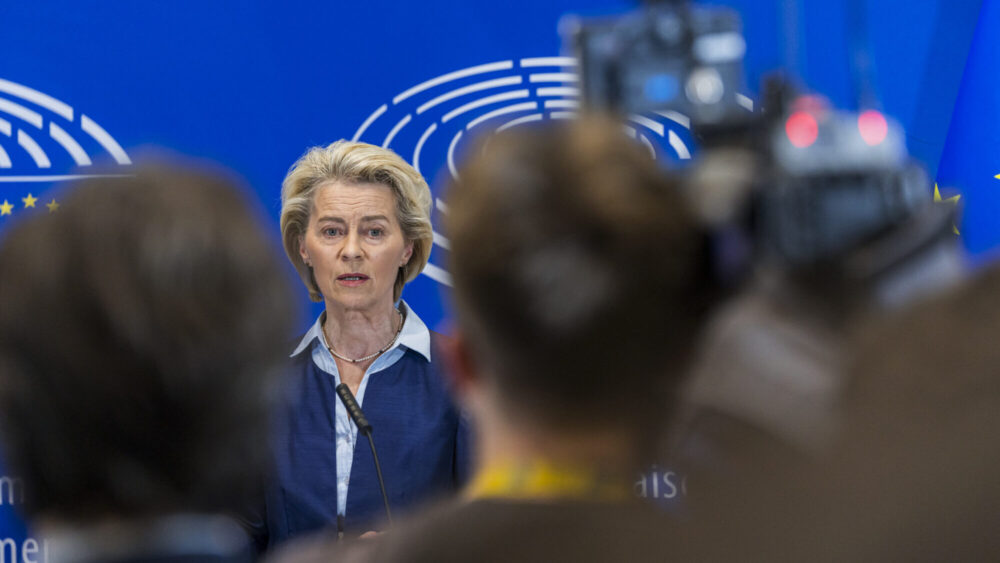
Ursula von der Leyen
Daina Le Lardic, © European Union 2024 – Source: EP
Friday’s court hearing, concerning European Commission president Ursula von der Leyen’s missing Pfizer text messages and suspected conflict of interest, has been postponed until December 6th. This means that the EU chief executive can avoid having to deal with the potential fallout from the case, right before her chance to snatch a second term at the helm of the EU, according to Euractiv.
The procedural hearing—meant to take place in Liege, Belgium—was to determine the fate of a complaint by Belgian lobbyist Frédéric Baldan against von der Leyen and answer the questions: Should the case be taken on by the Belgian legal system, or be left to the European Public Prosecutor’s Office (EPPO)?
To recap: EPPO is already running its own Pfizergate investigation (while facing unexpected roadblocks put there by the Commission itself). This scandal revolves around the chief commissioner’s shadowy vaccine procurement methods. It has been ongoing since early 2022 when it was revealed that von der Leyen negotiated the details of the giant, €1.8 billion pharmaceutical deal via text messages with the Pfizer CEO, alongside texting her husband, family friend, and business associate about the matter—SMS messages which were all, she later claimed, accidentally deleted.
The European Commission has been refusing to release the texts ever since, even after the European Ombudsman has repeatedly called for them to do so and officially declared “maladministration” in the matter.
Apart from accusing von der Leyen of “usurpation of functions and title,” destruction of public documents, and high-level corruption, Baldan’s lawsuit also seeks €50,000 in moral damages for “undermining the collective trust in the Belgian state.” The goal is not to win, necessarily, but to potentially strip the Commission chief of her immunity during the investigation.
That may need to be the case if she keeps refusing to disclose the SMS messages, which may be why the Liege court decided to give both sides an additional six months to examine certain aspects of the case. These six months will, conveniently, likely see von der Leyen reinstalled as Commission president before she has to face the court of law and public opinion.
In his press release, von der Leyen’s lawyer Adrien Masset boasted that the delay only helps the complainants by giving them a chance to recast their “clearly inadmissible” arguments—as if Pfizergate wasn’t one of the biggest threats to the Commission president’s second stint in charge and having a hearing just weeks before the European elections would not hurt her or the Brussels mainstream’s re-election chances.
Having Masset on her side is bad news for von der Leyen’s prospective opponents in a courtroom, as the lawyer is famous for defending the biggest names in Belgian politics in major corruption cases. His other clients include former Israeli PM Ariel Sharon. As Le Vif put it a few years ago, Masset is the establishment’s go-to attorney, and von der Leyen definitely needs the best if she wants to get out of what’s described as the largest corruption scandal in EU history. Yet while this makes for a solid legal strategy, it is likely to alienate even further the wider public in Europe.
